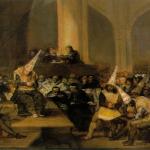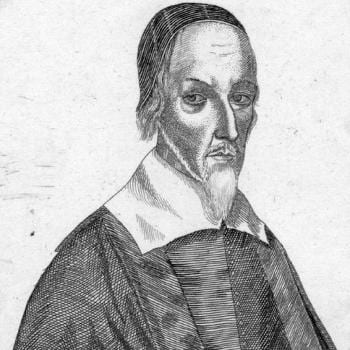According to Aristotle, and later further developed by Thomas Aquinas, man is by nature a social and political animal – which is to say, that humans only become human in the context of polities and society. Shorn of such relations, the biological creature “human” was not actually a fully realized human – not able to achieve the telos of the human creature, a telos that required law and culture, cultivation and education, and hence, society and tradition. Thus, Aristotle was able to write (and Aquinas after him essentially repeated) that “the city is prior to the family and the individual” – not, of course, temporally, but in terms of the primacy of wholes to parts. To use a metaphor common to both the ancients and in the Biblical tradition, the body as a whole “precedes” in importance any of its constitutive parts: without the body, neither the hand, nor foot, nor any other part of the body is viable.
Within human societies, to the extent that humans are able to develop true and flourishing individuality, it is only by means of political society and its constitutive groups and associations, starting of course with the family. An essential component of our capacity to achieve human flourishing is our learned ability to place ourselves under rule and law. At first, as children, we are expected to obey because of the claims of authority – we follow rules and law because we are told to do so by our elders. As we grow in maturity and self-knowledge, we assume the responsibility of self-government – ideally in a form that is continuous between the individual and the city. For the ancients, liberty is the cultivated ability to exercise self-governance, to limit ourselves in accordance with our nature and the natural world.
The various practices by which we exercise self-limitation and self-governance is comprehensively called virtue. By contrast, for the ancients, the inability or unwillingness to exercise virtue was tantamount to the absence of liberty. The unbridled or even extensive pursuit of appetite led necessarily to a condition of servitude and even slavery – slavery to one’s passions. Thus, for the ancients, law was not an unnatural imposition of humanity’s natural freedom; rather, law (ideally, a self-imposed law) was the necessary and enabling condition for liberty.
Some might say that this question stands at the center of contemporary Christian (or, given the group I know best, Catholic) politics. On the one hand, we have everyone from Tradinistas, liberation theologians (this may sound odd, but the idea that justice is owed to the poor is necessarily rooted in some older conception of freedom), and certain conservatives (e.g. Deneen, Red Tories). On the other, there are liberal Christians (in the colloquial sense), liberal conservatives, and fusionists.
My goal in writing this is not to point out who is right (previous posts ought to make that clear enough). Rather, I’d like to focus on one thing: the necessary conditions for defining freedom (in any, to my mind, workable version) and thus the ways in which that conception is latent in Christian (or, again, at least Catholic) theology.













